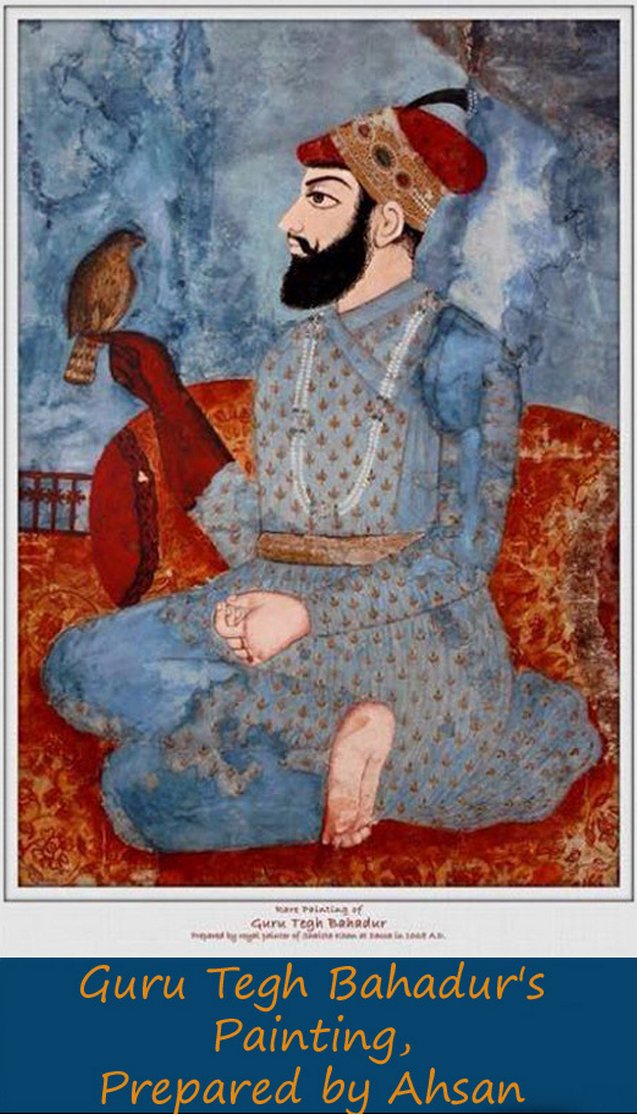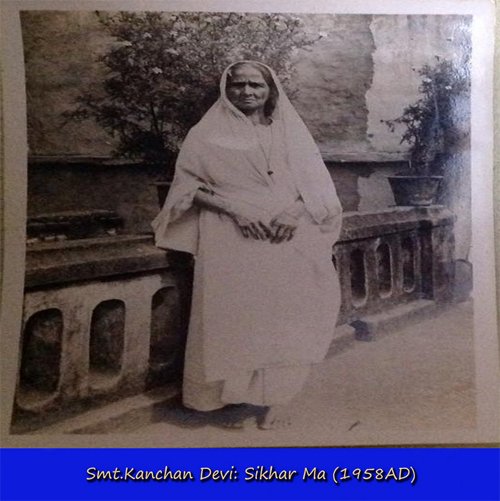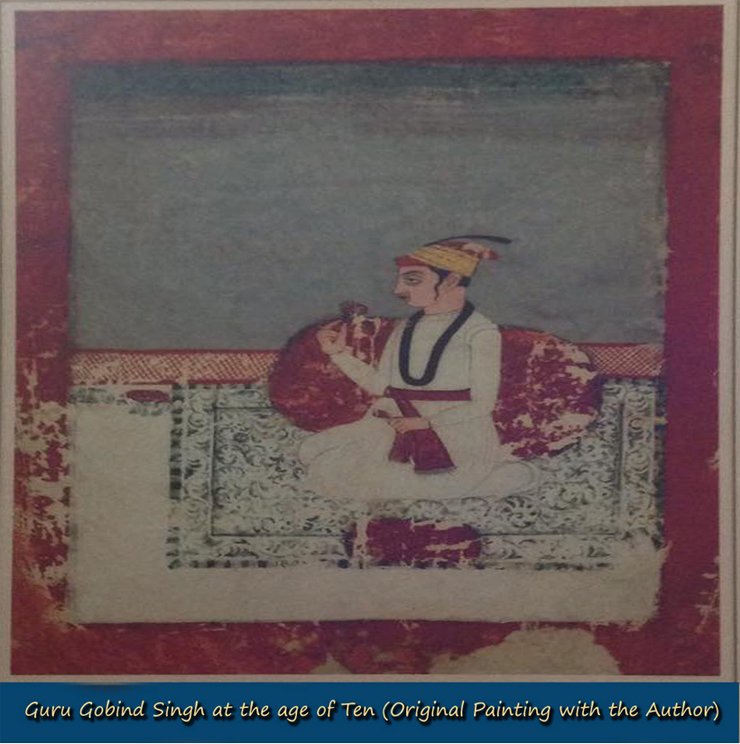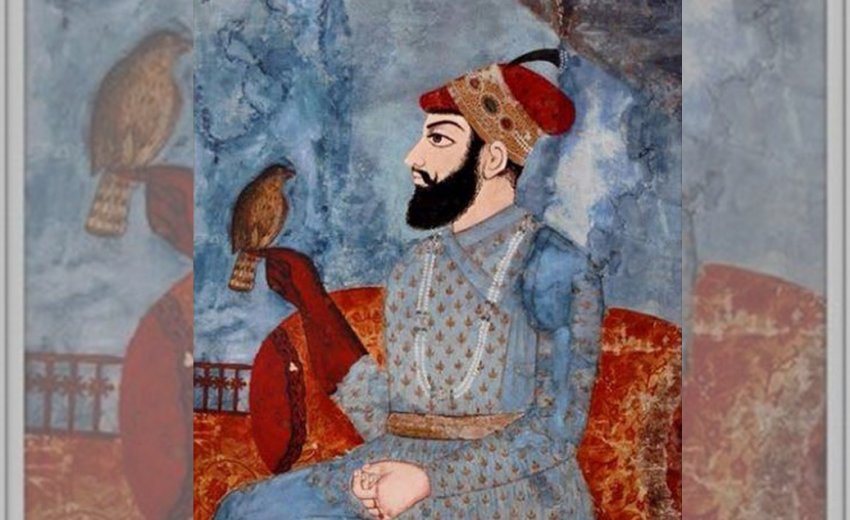Historicity of Guru Teg Bahadur's painting, prepared by Ahsan, royal painter of Shaista Khan, Governor of Bengal in 1668 AD. Discovered by Dr. Trilochan Singh 1958 and published in his book, "Guru Tegh Bahadur: Prophet and Martyr (1967)-Sardar Anurag Singh, Prof.

During his itinerary in Eastern India (1666-1671), Guru Tegh Bahadur stayed at Dacca from December 1666-May 1667AD and from January 1668 – February 1669 AD. The congregation of Dacca (Sangat) had built a mansion for Guru Tegh Bahadur’s stay, which is now known as Gurdwara Sangat Tola, and the locality in which it is situated is called Sangat Tola Lane. Close by it was the Christian Mission under Father Bernard de Jesus. Shaista Khan issued a royal order (Firman) not to collect taxes from the Dharamsal of Guru Tegh Bahadur as mark of respect for the Guru and devotion to his universal message of peace and brotherhood.
Before his departure from Dacca Guru Tegh Bahadur Consented to the request of mother of Bhai Bulaki Das, the Chief Represented of Dacca, for making a portrait of the Guru by Ahsan, the Royal Painter of Shaista Khan, to have glimpse of the divine personality of the Guru.
This historical fact has been recorded by Sarup Das Bhalla, a descendent of Guru Amar Das in Mehima Prekash (1773 AD) and Kavi Santokh Singh in his Suraj Prakash (1842 AD).
Sarup Das Bhalla says:
Mother (of Bulaki Das) brought the renowned royal painter. The royal painter prepared the portrait of of Guru Tegh Bahadur in the holy presence of the Guru. The entire portrait along with the apparel, worn by the Guru, was prepared by the royal painter, except the radiant face of the Guru. Sensing the helplessness of the painter, the compassionate Guru got hold of the painter’s brush and completed the self-portrait with his own hand. The the Guru presented his portrait to the old lady (mother of Bhai Bulaki Das).
Mehima Prakash,Verses.17-18,page.719.
Kavi Santokh Singh says:
“I (Guru Tegh Bahadur) had to undertake further journey to perform my divine mission. I shall be leaving this place (Dacca). To fulfill your earnest desire you can get my portrait prepared in my presence." Elated at the offer of the Guru the old lady left her house and came back with an artist to prepare the portrait of the Guru. She offered handsome money to the painter and requested him to draw the portrait of Guru Tegh Bahadur by feeling fix physical as well as divine presence. Sagacious painter was delighted. In all humility the painter greeted the Guru and took his seat near the Guru. After seeking blessings of the Master the painter started preparing the portrait of the Guru. The painter drew all the parts of the body of the Guru in the royal dress in which the Guru was attired. The radiant face of the Guru was blooming like a lotus flower and his eyes were shedding divine rays of grace, which the painter could not withstand. So he expressed his inability to draw the glowing face of the Guru. Then the Merciful Lord took the brush from the painter and prepared his face in his own hand and gave final touches to complete this self-portrait. Whosoever had a glimpse of this unique portrait went into ecstasy. Guru Tegh Bahadur presented this portrait to the old lady personally. After receiving this desired gift from the Guru the old lady felt a strange tranquility of mind.
Suraj Prakash,Ras.12,Ansu.5,Verses.38,40-44.
From the above two historical records the following points emerges:
(i) the painter successfully painted every detail of Guru Tegh Bahadur’s body and dress on the canvas.
(ii) he could not paint the face of the Guru for his portrait as the resplendence of the Guru’s face dazzled his eyes. Ultimately Guru Tegh Bahadur gave finishing touches to the self portrait by preparing his face with the brush of the painter.
This historic painting of Guru Tegh Bahadur along with a Letter of Guru Gobind Singh and many old codices of Guru Granth Sahib were preserved by the descendants of Bulaki Das in Gurdwara Sangat Tola, Dacca. My father ( Dr Trilochan Singh ) during his research tour in East Pakistan ( now Bangla Desh ) in 1958 procured the photographs of these relics and published in his book, “Guru Tegh Bahadur: Prophet and Martyr”.(1967).
These relics were preserved by 75 year old lady Smt. Kanchan Devi, whose photograph taken in 1958 by my father is being uploaded for the first time. My father’s comments on these relics in Bangla Desh are: “We still have in this temple ( Gurdwara Sangat Tola ) a very old painting of Guru Tegh Bahadur, a letter of Guru Gobind Singh dated 1694 AD and number of old recessions of Adi Granth.” One illumined copy is the best of all I have seen throughout North India. The temple is maintained by a 75 years old Bengali Sikh lady Smt. Kanchan Devi, about whom Dr Ahmad Hasan Dani, the Curator of Dacca Museum writes in his recently published book, “DACCA”:“popularly known as Sikhar Ma-Mother of the Sikhs, she is left behind by her co-religionist to keep aflame the torch of Sikhism in this far off of land of East Pakistan. The lady in her dismal sorrow deserve our sympathy for her great enthusiasm and love of devotion”.
(Ahmad Shah Dani, Dacca, p.112).
Dr Trilochan Singh further informs us: “Smt.Kanchan Devi is a Pakistani national and her son Kirpal Singh who comes here from time to time is an Indian national. The credit for preserving the sanctity of this temple and the life of the lady goes to a Muslim, named Fateh Muhammed, a police personnel, who protected her from all dangers during the troubled period. Fateh Muhammed has been transferred from here, but he came here for a weekend the other day, and I was able to see the touching affection between Fateh Muhammed and Sikhar Ma ( Smt.Kanchan Devi ). Once more I was convinced that the light and wisdom of true religion creates only love and not hatred and bitterness”. ( The Sikh Review, February 1959 ).

Kanchan Devi was brought to Calcutta by her baptised son Kirpal Singh in 1971 to escape from the holocaust of War of Liberation of Bangla Desh, where she died at the age of 89, in 1973.
During the War of Liberation of Bangla Desh the Sikh Shrines also suffered a lot. These relics along with portrait of Guru Tegh Bahadur were retrieved from Gurdwara Sangat Tola in 1975 by late Capt. Bhag Singh. While other parts of the portrait have worn off, the facial part, prepared by the Guru is still intact. An oil painting, copy of the original is also preserved in Gurdwara Nanak Shahi Ramana, Dacca. The painting was handed over to Victoria Museum Calcutta for restoration and preservation. The painting has been badly mauled by the authorities of Victoria Museum Calcutta and is no more on display. One of its copy is also available in Victoria Museum London.My father ( Dr Trilochan Singh ) was the first scholar who on the basis of notes located this historic painting of Guru Tegh Bahadur in 1958 and published in his book, “Guru Tegh Bahadur: Prophet and Martyr” in 1967.
Negatives of this painting photographed by father from Dacca in 1958 and from London in 1977 are preserved in my library.
It is a matter of great concern that while millions of rupees are being spent on demolishing old Sikh Shrines and constructing new shrines, no attention is being paid to preserve the old heritage sites and relics to preserve the rich Sikh heritage and construct the SIKH ARCHIVE for this purpose. It is high time that SGPC should come forward to conserve and preserve the heritage of the Sikhs.

I am also uploading another contemporary painting of Guru Gobind Singh at the age of ten, original in my library, so that readers can compare the eyes, turban and postures, which are identical in both the paintings of the son and the father. History is not written by if and buts or conjectural views and imaginative theories but by sound historical evidence. It is upon the individual thinking to accept the historical facts or wild imaginative conjectural statements; that makes no difference to history in any manner.
Gur Fateh!!!
Anurag Singh
28.5.2015.
